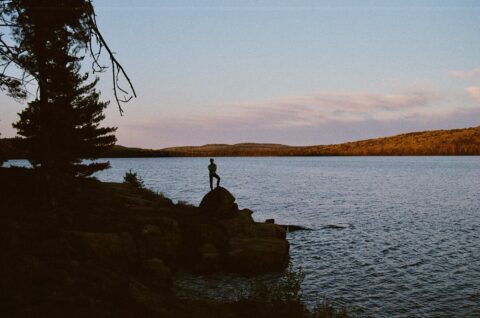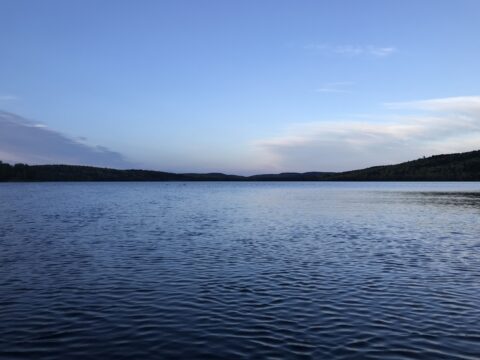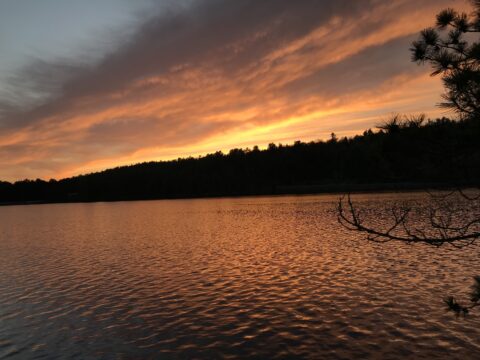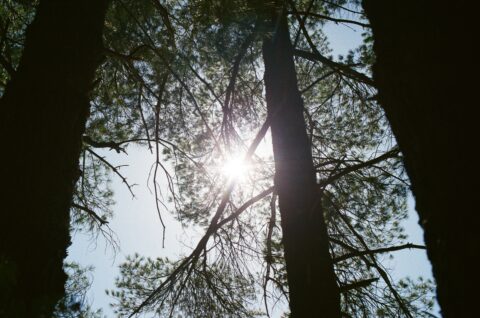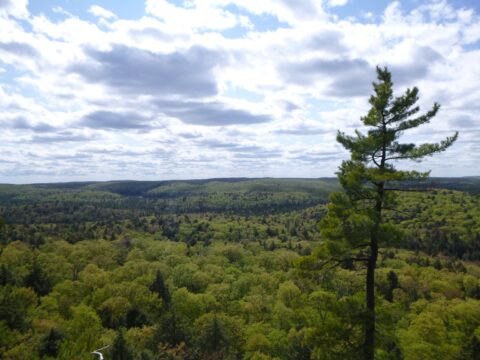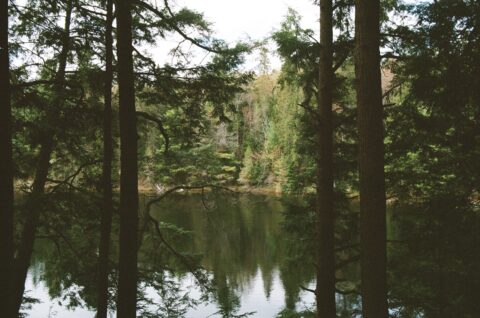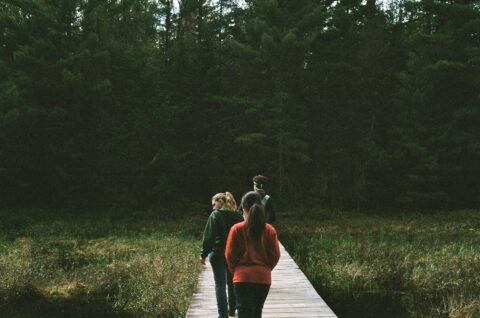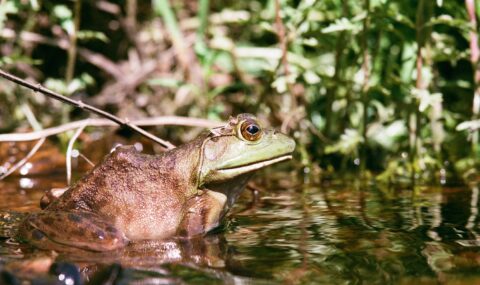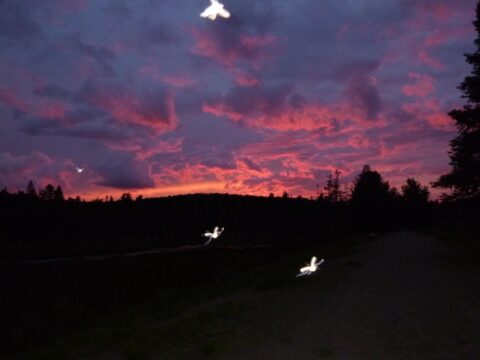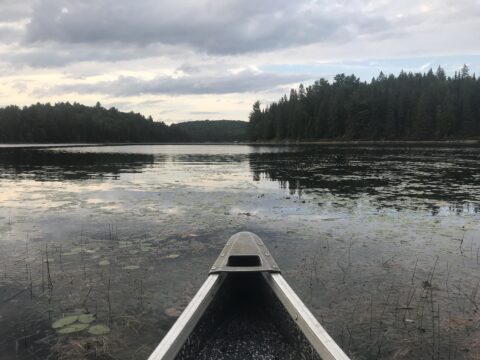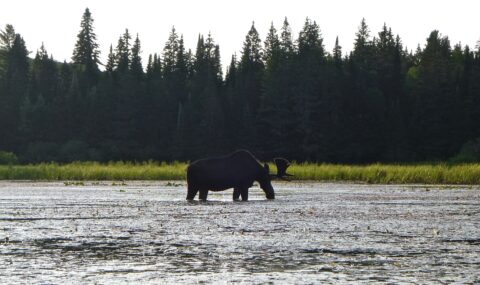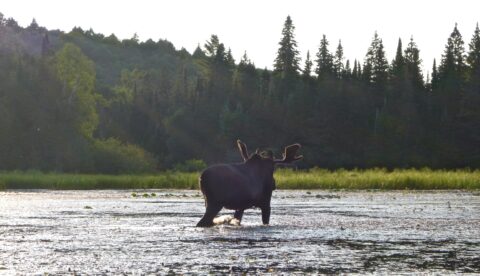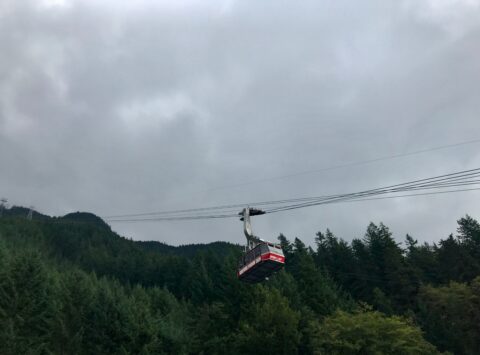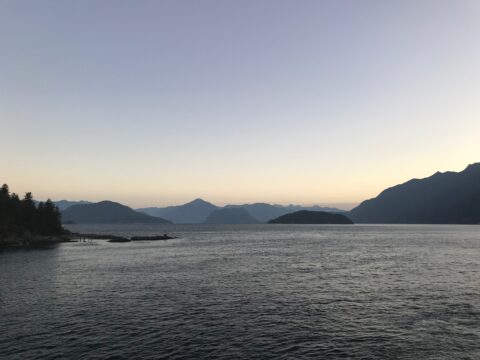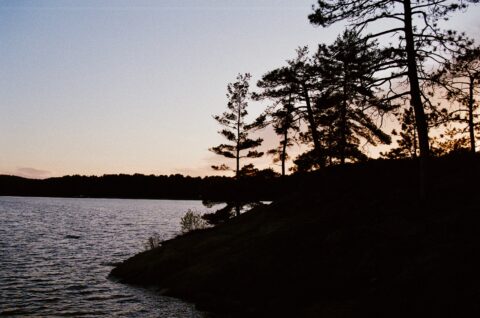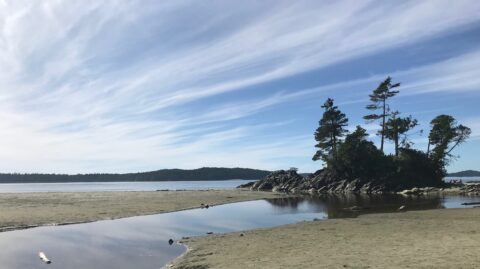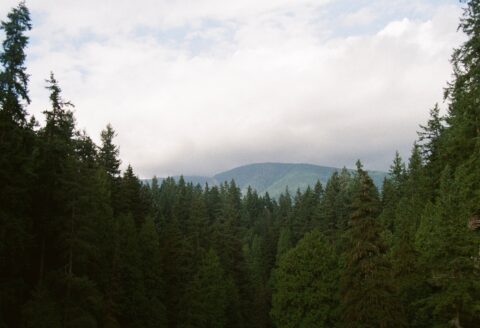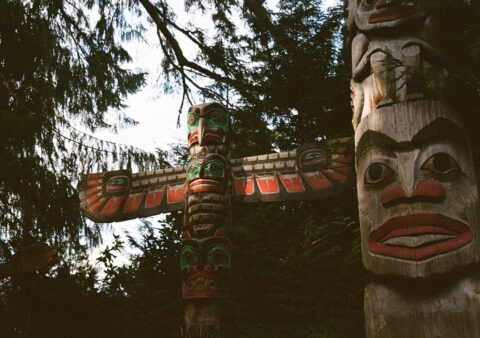Hayley Vlcek spent the 2019 field season at the Station as a participant in the University of Toronto’s Research Excursion Program (REP). She wrote and photographed this personal reflection on her time here in early spring and summer, and her trip to British Columbia in late summer. We think the emotions Hayley expresses through her words and images will resonate with many who long to escape the bustle of city life and spend time in the wilderness.
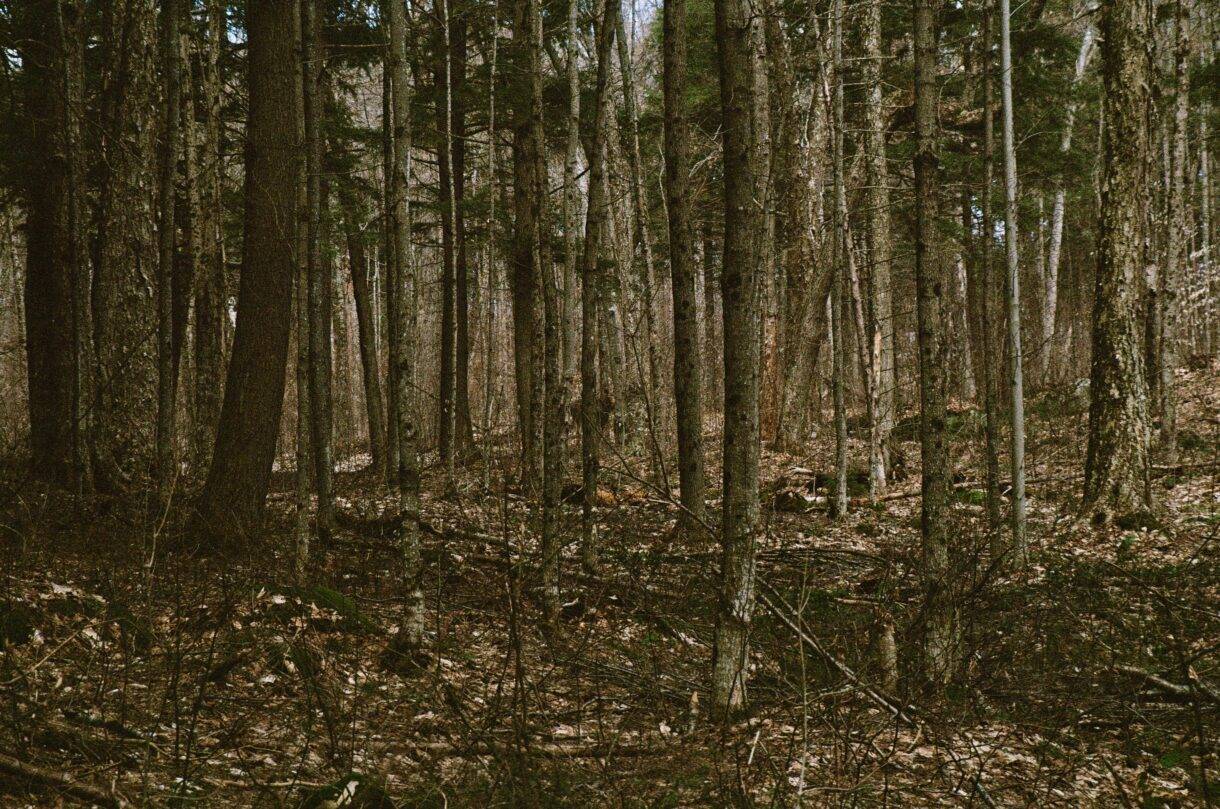
A female Moose hides deep in the brush, wary of predators that could be lurking in the shadows. Chit Lake Trail, Algonquin Park.
In 4th grade, I learned Canada is an expansive country, second only to Russia in terms of raw magnitude, with some of the most unblemished wilderness in the world. However, it took me 20 years to truly grasp its vastness – I was oblivious to the sheer size of the Canadian outback until last summer, when I had the privilege to explore the natural landscapes of the country.
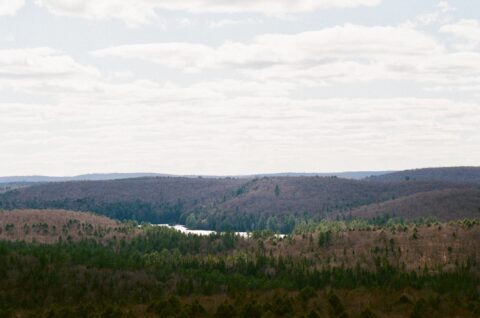
At the top of the Chit Lake look-out a dormant spring forest can be seen for miles. Chit Lake look-out, Algonquin Park.
It can be difficult to make sense of the scope of the country living in a quotidian Canadian lifestyle. The city (Toronto) itself is its own world and it is easy to forget that just outside this concrete labyrinth lies the vast wilderness that is Canada. From sea-to-shining-sea, the country is teeming with biodiversity and extraordinary natural landscapes. It can feel so far removed from the bustling city, and yet it sits just outside the city limits, waiting for us to explore.
Monotony is something I am very familiar with. Everyday life in the city, while not without perks, is often an exhausting routine. I am often dialed into waking up, attending class, coming home, managing a handful of extracurriculars, and working on assignments long after the CN tower ignites the evening sky. Oftentimes, at my kitchen table, staring out the window of my tiny apartment, I find myself reminiscing about last summer. It seems so long ago, and yet it lingers – the crisp air of forest trails, the splashing sensation from paddling across the blue, the smooth, slippery rock face. My mind is still in these places.
The bustling city energy tests me at times. I will never say my life is bad – I am very privileged to be where I am – but the pressure to succeed, the stress of schoolwork, and concerns over my future can wear me down. At times, I feel like I forget how to breath. The expeditious city is filled with so many people, so much activity – I get so caught up in this rapid whirlwind that I forget that a whole country exists outside these city limits.
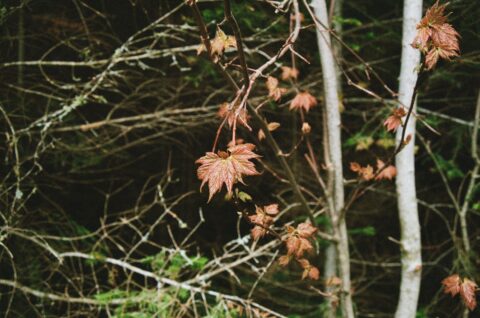
The barren winter landscape begins to show first signs of life as the first leaves can be seen on a young Red Maple. Peck Lake Trail, Algonquin Park.
Nature whisks me away from the stresses of everyday life, offering a moment of pause and reflection. Last summer, out in the middle of nowhere, the rest of the world percolated back. I had a moment to pause, catch my breath before it all began again. Being able to rejuvenate myself and reflect on my mental health has taught me a lot about the value of the land beyond practical services and our connection to the Canadian wilderness.
There is something comforting and homely feeling about the landscapes of this country. Like us it changes with time, decorated with incremental transitions that pass unnoticed in the present. Where there were once saplings now stand trees – I have faith this is nature’s reflection of my own inchoateness.
My experience last summer has shown me so much more of the expansive Canadian landscape. The vastness of the lakes and hemlock cathedrals tucked away in Ontario’s Algonquin Provincial Park enthralled me, while the temperate rainforest and imposing mountainous landscape of Canada’s west coast left me in awe.
I remember all of it whilst looking out from my tiny apartment window.
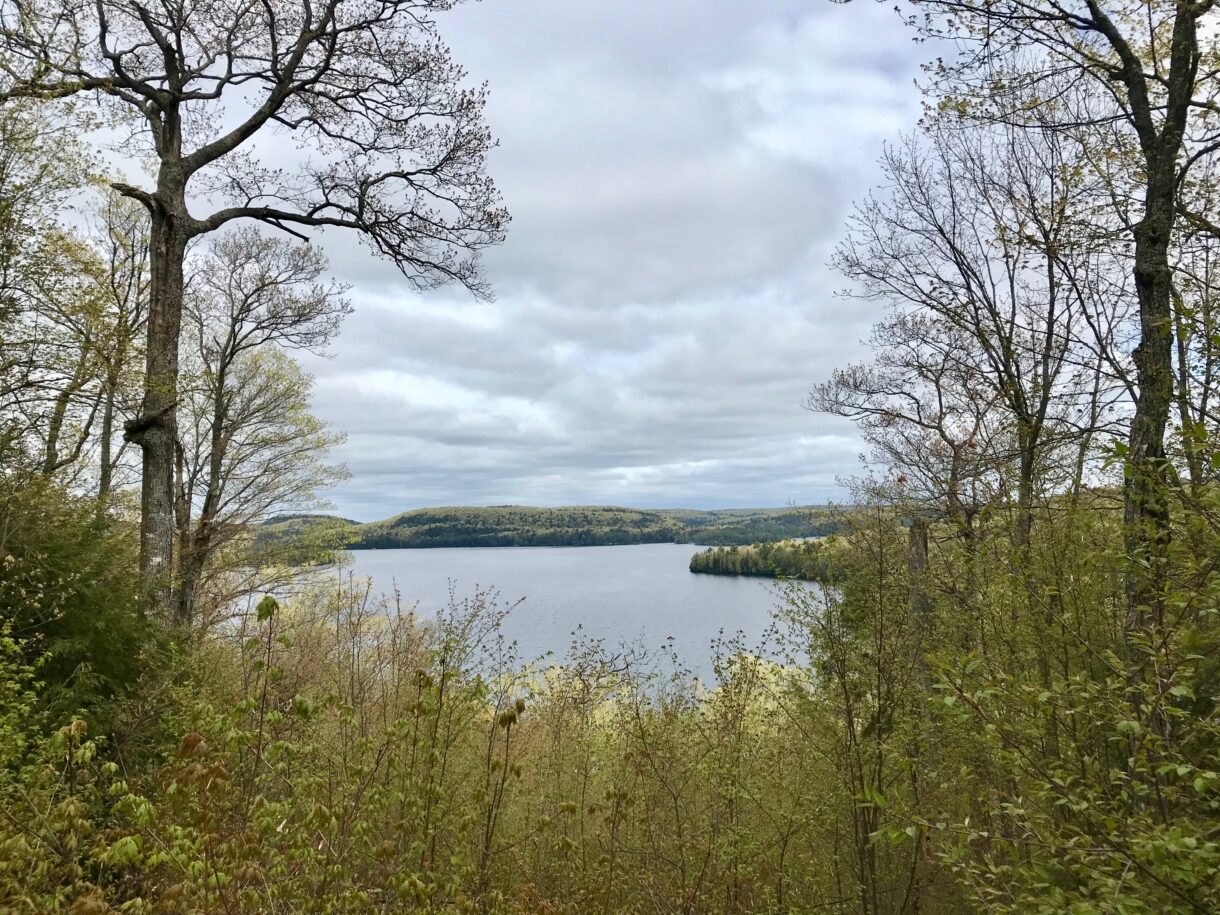
By mid-May, the hardwood forest finally begins its transition from dull browns to a mix of spring yellows and greens. Hardwood Look-out Trail, Algonquin Park.
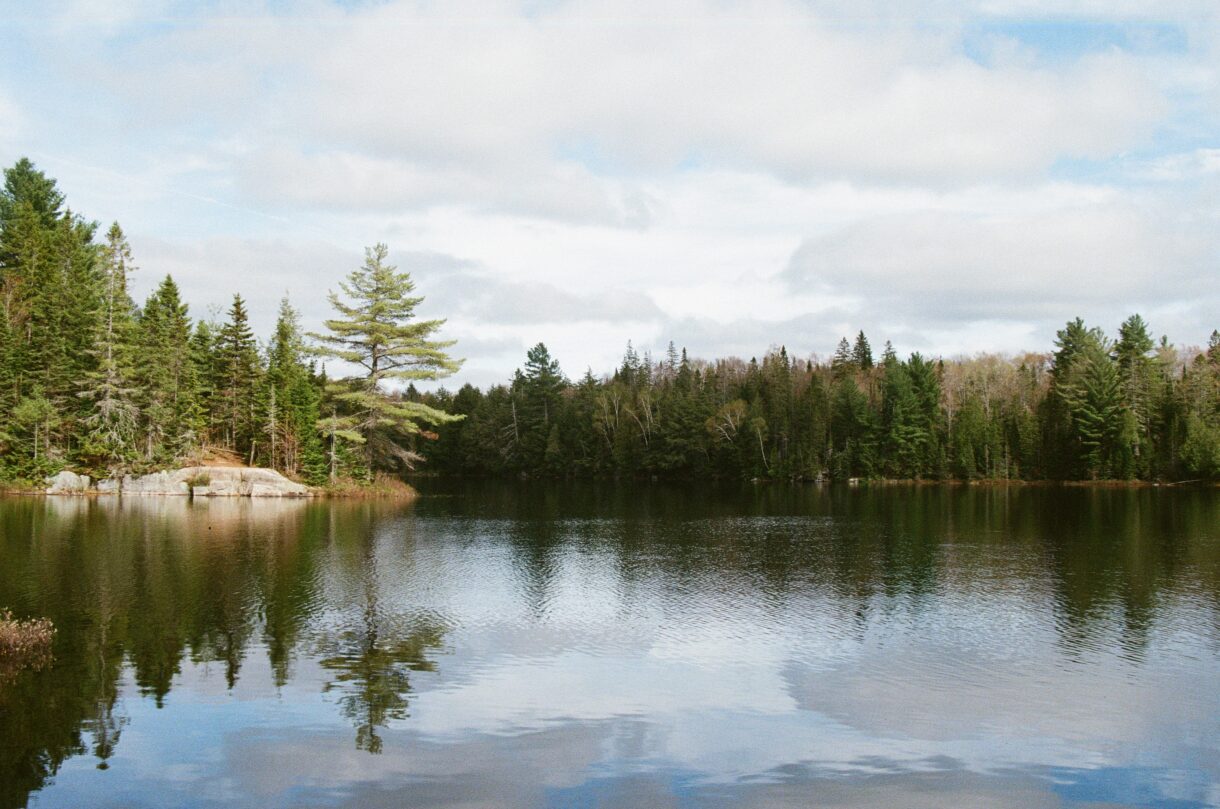
The iconic rocky shoreline peeks out from under the forest cover as a White Pine dips towards the water’s edge. Peck Lake Trail, Algonquin Park.
- A triumphant explorer poses along the shore of a nameless lake island. Lake of Two Rivers, Algonquin Park.
- Nature is dynamic, it is always changing and adapting. Nothing quite demonstrates its ability to change in an instant like the fiery sunsets in Algonquin Park. The sky shifts from an array of soft blues and pinks (8:20 p.m.) to a blazing orange in just a few minutes (8:50 p.m.). Lake of Two Rivers, Algonquin Park.
- Nature is dynamic, it is always changing and adapting. Nothing quite demonstrates its ability to change in an instant like the fiery sunsets in Algonquin Park. The sky shifts from an array of soft blues and pinks (8:20 p.m.) to a blazing orange in just a few minutes (8:50 p.m.). Lake of Two Rivers, Algonquin Park.
- Overhead the sun peeks through a stand of White Pines along the shoreline. Gelok Pond, Algonquin Park.
- A thriving forest covers the landscape in a blanket of green. Lake of Two Rivers Trail, Algonquin Park
- Seeing the forest through the trees. Peck Lake Trail, Algonquin Park.
- Student researchers explore the vast expanse of Algonquin Park. Peck Lake Trail, Algonquin Park.
- Portrait of a local resident. A female American Bullfrog sits in the cool waters of a shallow rock pool. Lake Sasajewun, Algonquin Park.
- During nightly monitoring duty, myself and some unwelcome guests enjoy the powerful colours the sun produces as it sets on the horizon. West Rose Lake, Algonquin Park.
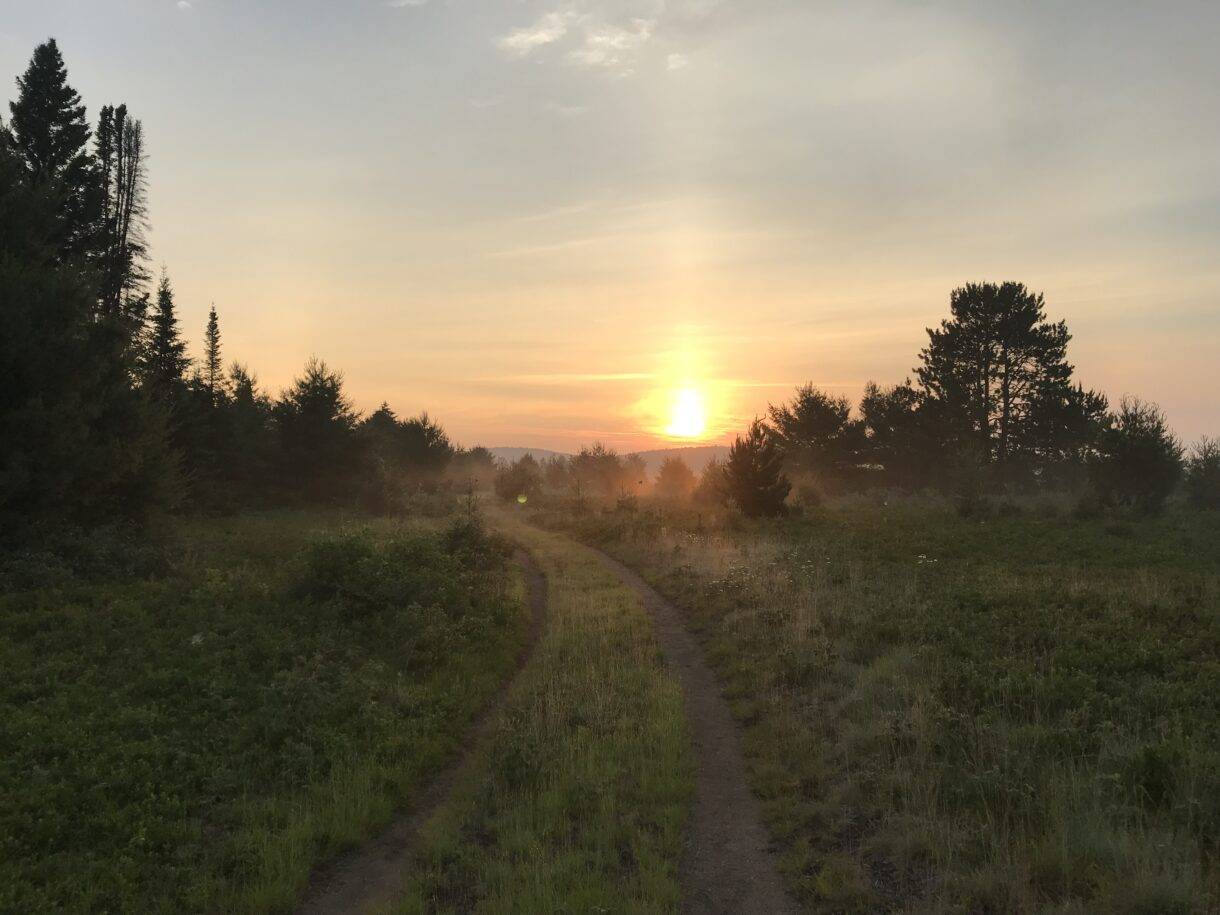
Sunrise turns morning research duties into a trip through a pastel dreamscape. Mew Lake Campground Airfield, Algonquin Park.
- A lake in full bloom can be admired during an evening paddle in late summer. Lake Sasajewun.
- A young bull moose stops to snack on the abundance of aquatic vegetation. Lake Sasajewun, Algonquin Park.
- A young bull moose retreats back to the forest, now that his belly is full. Lake Sasajewun, Algonquin Park.
- A gondola ascends up the mountain and into the misty clouds. Sitting high above the green expanse below, it offers a spectacular view of one of Canada’s major metropolitan cities. Grouse Mountain, North Vancouver, BC.
- A rocky outcrop stands out against the sandy island shoreline. Tofino, Vancouver Island BC.
- Sunrise over the Strait of Georgia captured from the Horseshoe Bay Ferry emphasizes British Columbia’s mountainous landscape. Vancouver, BC.
- Trees standout against the sunset backdrop on a nameless lake island. Lake of Two Rivers, Algonquin Park.
- The treeline over the Capilano River Valley frames the distant Grouse Mountain. Capilano Suspension Bridge, North Vancouver, BC.
- Squamish Nation totem poles tower over the surrounding landscape. Capilano, North Vancouver, BC.
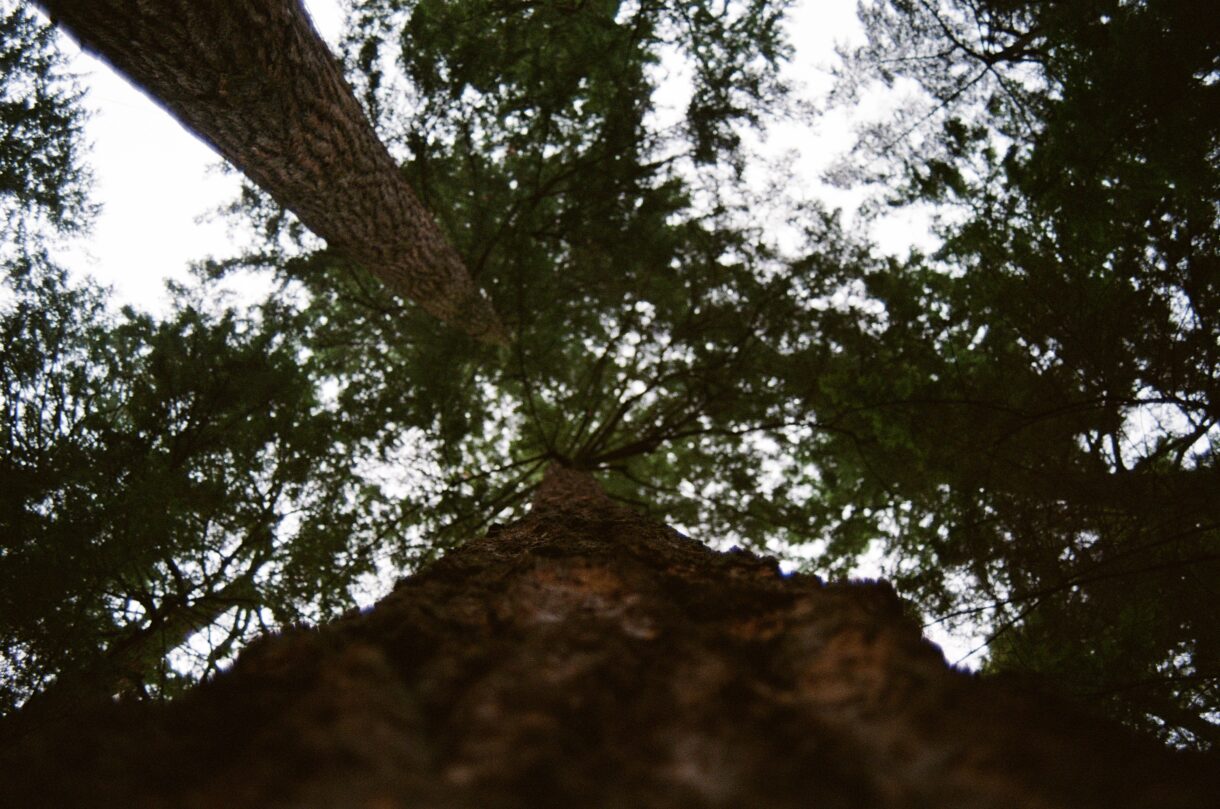
Turning your head up towards the canopy of a temperate rainforest grants one a beautiful panorama of leaves. Morrell Nature Sanctuary, Nanaimo, BC.
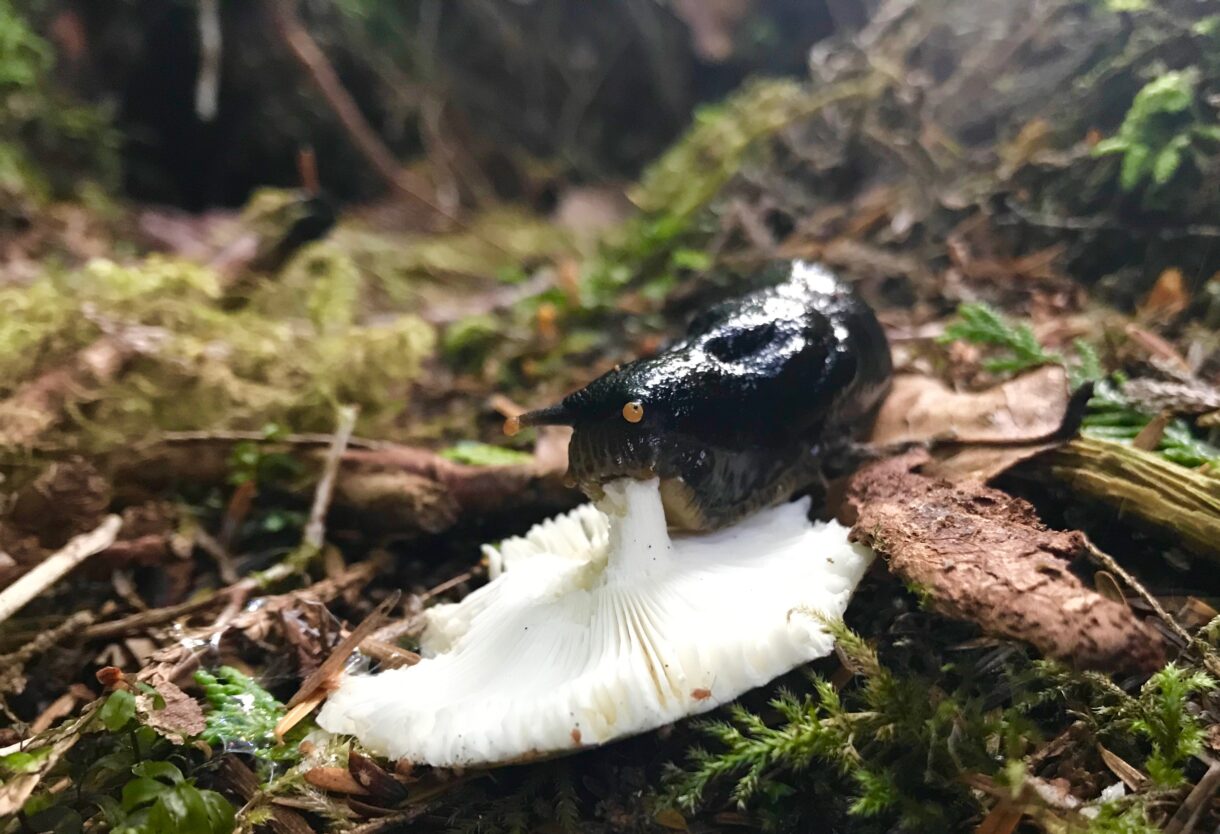
On the forest floor of a pacific temperate rainforest, a European Black Slug munches on a mushroom. Pacific Rim National Park, Vancouver Island, BC.


